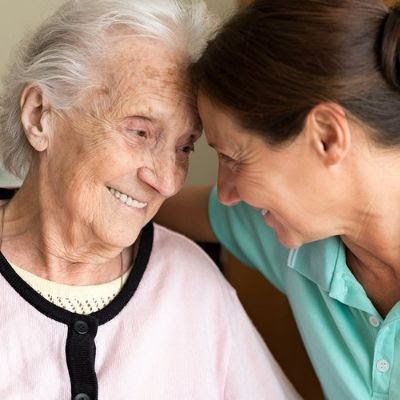Remebering Two Pioneers of Alzheimer's Caregiving
Dear Caregivers,
We’ve recently seen the passing of two remarkable women known not only for their pioneering role in the U.S. government, but also for their deep commitment to championing issues of mental health, dementia, and caregiving.
Rosalynn Carter, who was First Lady from 1977 to 1981 as the wife of President Jimmy Carter, was a life-long champion of expanding mental health services. She led the President’s mental health commission, the White House Conference on Aging, and founded the Rosalynn Carter Institute for Caregivers at Georgia Southwestern.
She also sought to reduce the stigma of mental illness, which she underscored by announcing in May that she herself was suffering from dementia, adding that “we hope sharing our family’s news will increase important conversations at kitchen tables and in doctor’s offices around the country.”
Sandra Day O’Connor, the first female Justice of the Supreme Court, is also remembered as a strong advocate for sufferers of Alzheimer’s and their caregivers. She had first-hand experience: Her husband, John, suffered from Alzheimer’s, and she herself later fell victim to the disease.
Her caregiving support for her husband was legendary. When John was unable to tend to himself due to the progression of the disease, O’Connor brought him with him to her offices at the Supreme Court. She eventually retired from the Court to serve as his full-time caregiver. At age 88, O’Conner announced in a statement that she, too, was suffering from dementia, noting that “while the final chapter of my life with dementia may be trying, nothing has diminished my gratitude and deep appreciation for the countless blessings in my life.”
I hope we can all take caregiving inspiration from these two remarkable women.
Here is some more inspiration on managing your caregiving role:
Setting Boundaries as a Caregiver:
As a caregiver, it is essential that you remain committed to your personal boundaries, making sure that you give yourself time and space to address your personal needs for rest, relaxation, and fulfillment. This foundation for positive self-care is vital in improving your well-being. Here’s how to do it.
Caregiver Burnout — How to Cope:
Caregiving for someone suffering from Alzheimer’s disease is one of the most challenging jobs in the world, and it comes with a risk of what is known as “Caregiver Burnout.” With caregiver burnout, you are in a state of physical, emotional, and mental exhaustion that may also be coupled with a change in your attitude towards your caregiving role, from one of positive, caring, and rewarding to one of feeling negative, unconcerned, and resentful. Here’s how to manage it.
Finding the Joy in Caregiving:
The challenge that family caregivers face is to learn acceptance, to live in the present moment, and to let go of things you cannot control. This is a challenge to be sure, but if there can be any joy in caregiving, this is where it is.
Remember, if you can’t find the information you need on our website, you can always “Ask NAN” by clicking on this link.
Best,
Rosemary D Laird, MD, MHSA
Founder and Chief Medical Officer
“There are only four kinds of people in the world — those that have been caregivers, those that are caregivers, those who will be caregivers, and those who will need caregivers.”
— Rosalynn Carter




